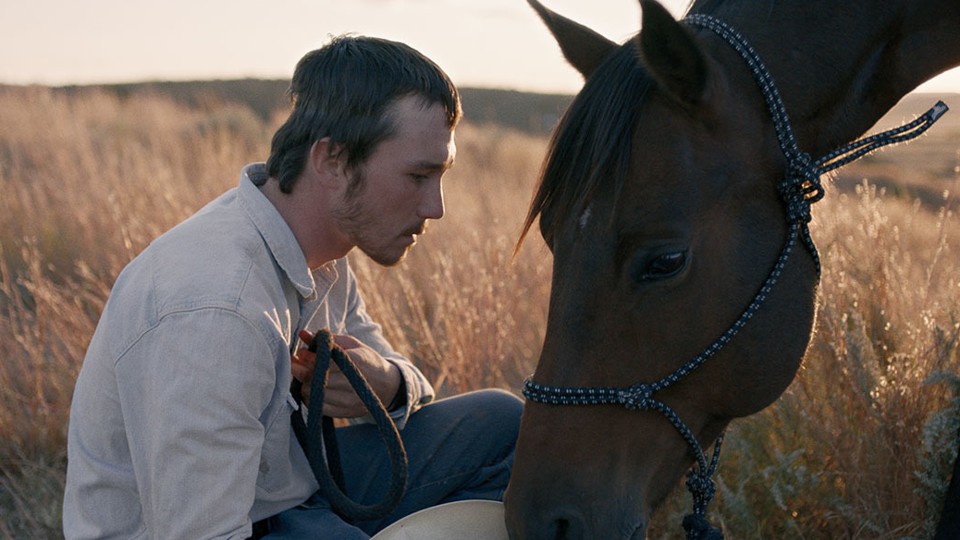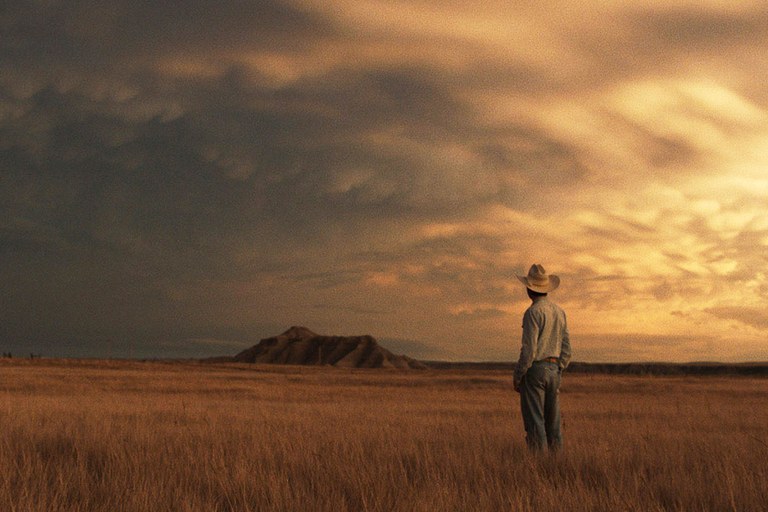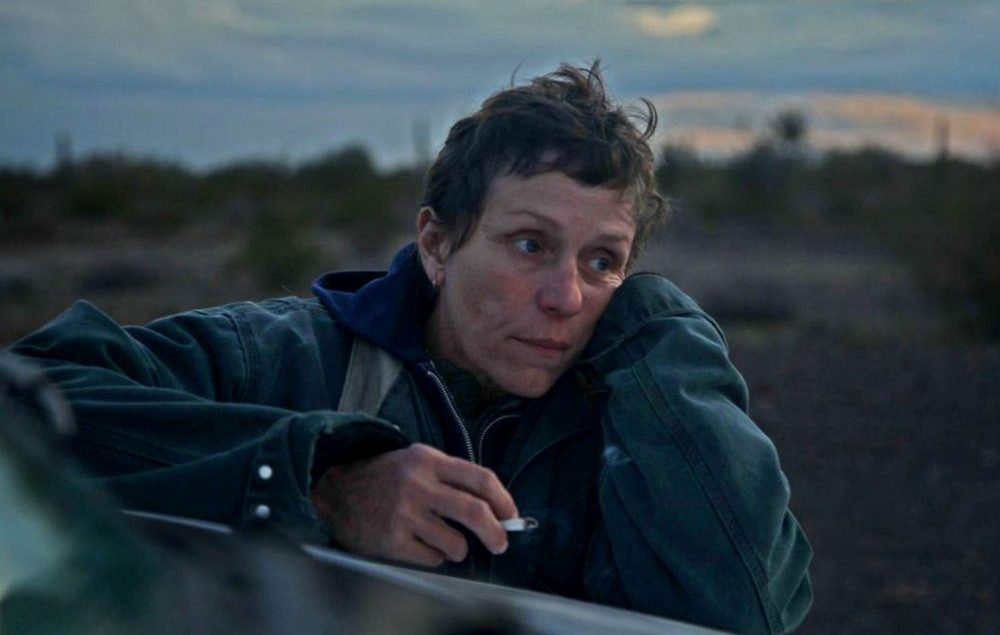
Nomadland is an extraordinary film, illuminated with a profound humanity. That humanity stems from the fierce authenticity of Frances McDormand’s performance and Chloé Zhao’s genius with nonprofessional actors.
McDormand plays Fern, a widow who lost her lifestyle when her longtime husband died and when the closing of the gypsum mine killed their hometown – to the extent that even the zip code for Empire, Nevada, was discontinued. Without the means to afford to live in her own house or apartment, she lives in her van and travels between seasonal jobs – at Amazon’s warehouse in Fernley, Nevada, during the holiday crush and at tourist campgrounds during the summer.
Fern is not alone. She finds a community of nomads – Americans her age, who travel the West in their RV homes between subsistence jobs. One of them, Bob Wells, organizes nomad round ups outside of Quartzsite, Arizona.
Zhao deploys these real people as characters in Nomadland and incorporates their real stories into the story that she is telling. Indeed, these nomad perspectives give us two of Nomadand’s most powerful moments – a monologue by a woman named Swankie about her acceptance of her mortality and Bob’s comments on the loss of his son.
McDormand’s Fern misses the life she had with her husband, but she has moved on to another chapter – one in which she has traded convenience and material amenities for independence. She may have to poop in a bucket, but (except when she needs her sister’s help to repair her van) she’s not obligated to anyone or anything. Another nomad, Dave (David Straithern), is attracted to her, but she warily and firmly regards Dave’s sweet bumbling attentions.
Is Nomadland a portrait of victims? Is it a political statement? There’s no question that the American political and socioeconomic systems have failed these people. But the nomads are not people who accept defeat.
McDormand’s flinty performance is a tour de force. Her Fern is as immortal as her Marge Gunderson in Fargo or her Mildred in Three Billboards Outside Ebbing, Missouri.
They say that acting is reacting, and McDormand’s engaged listening magnifies the impact of Swankie’s and Bob’s speeches. Her increasingly purposeful stroll through the Badlands, at first solitary and then observed by Dave, expresses the value she places on her independence. McDormand has almost no dialogue in two of most powerful and indelible scenes – in the Badlands and on the Mendocino Coast.
McDormand, Straithern and Melissa Smith, who plays Fern’s sister Molly, are the only professional actors in Nomadland. Smith is conservatory director and head of acting in the MFA program at the American Conservatory Theater (ACT), but has never before acted for the screen. (As a child, musician Tay Straithern, son of David, appeared in two of his dad’s movies.)
Zhao’s screenplay is based on Jessica Bruder’s nonfiction book Nomadland: Surviving America in the Twenty-first Century, and some of the folks interviewed by Bruder are featured in the film.
Her previous film, The Rider, with a nonprofessional actor as the protagonist, made me into a huge Chloé Zhao fan. Next up for Zhao is a Marvel franchise movie with big stars, she deserves the payday.
I’m annoyed that IMDb and some other sources describe Chloé Zhao as a “Chinese director”. Although she was born in Beijing, I consider Zhao an American filmmaker. As a child, she left China for a London boarding school and finished high school in LA; she graduated from college and film school in the US, and has made all of her movies in America. Besides, what other filmmaker has set her last three movies in South Dakota, for chrissakes?
The reflective nature of Nomadland is enhanced by the vast landscapes that swallow the characters, beautifully shot by cinematographer Joshua James Richards. Richards, Zhao’s partner and the DP on her two previous films, has a gift for celebrating the panoramas and Big Skies of the Mountain West. He seems to specialize in dramatic clouds, multi-hued sunsets and sparks from campfires lifting into the night.
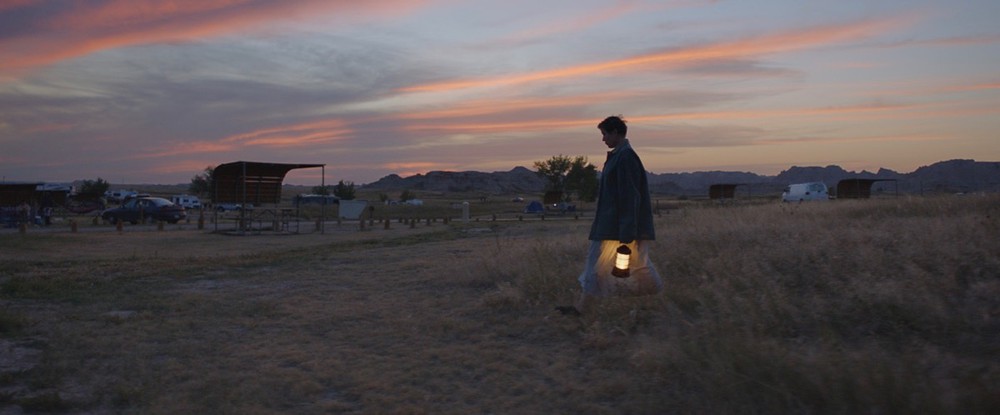
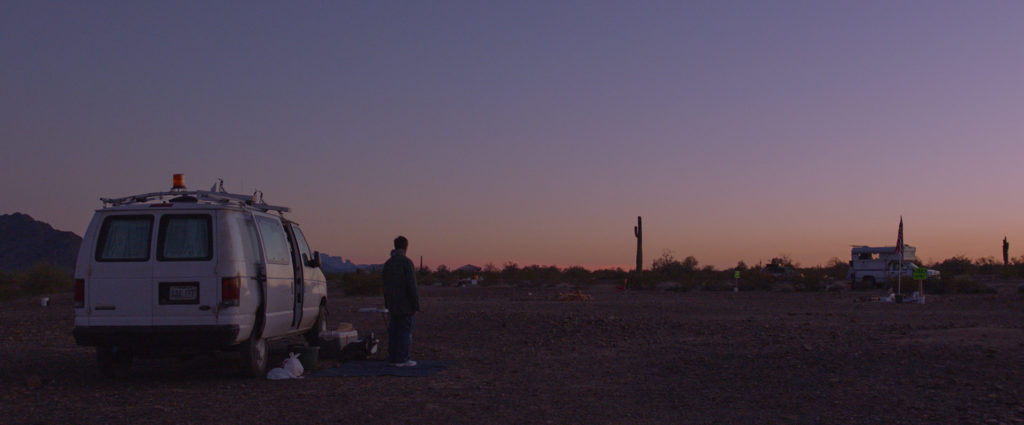
The understated music of composer Ludovico Einaudi is perfect for Zhao’s story. Einaudi’s music is often featured on Radio Paradise., the blogging soundtrack of The Movie Gourmet.
Nomadland is the critical consensus choice as the year’s best film and tops my Best Movies of 2020. It is streaming on Hulu.

